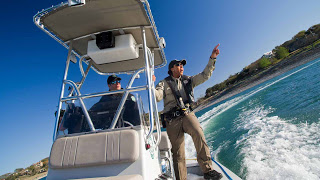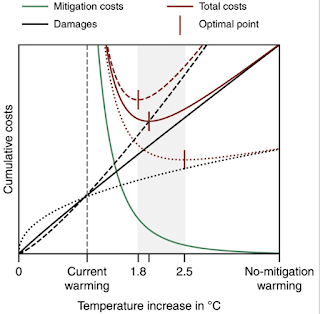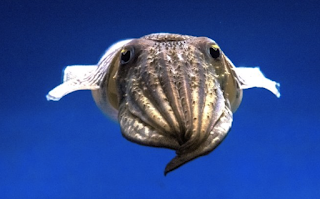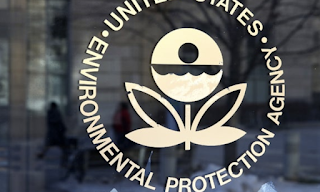Texas applies “bite” to finning offenders, Recreational fishermen increasingly target rays/sharks researchers concerned, Doctors weigh in with concerns about the health impact of climate change and more…
Texas Game Wardens are filing several Class B misdemeanor charges on 10 restaurants and markets in the Houston and Dallas area for selling shark fins and shark fin products. “Protecting the many shark species residing and migrating through the Gulf of Mexico, as well as the illegally trafficked sharks from around the world, offered for sale in Texas is one of our highest priorities,” said Col. Grahame Jones, Law Enforcement Director at the Texas Parks and Wildlife Department. “Texas Game Wardens will continue to proactively work investigations related to illegal shark fin products and violations against the many species of wildlife found throughout the state.”
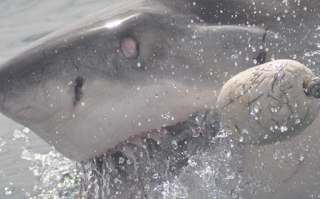 New research estimating the haul of recreational fishers around the world finds that sharks and rays are increasingly being targeted, and that has researchers worried. The United Nations’ Food and Agriculture Organization (FAO) has been documenting commercial fisheries catches by country since 1950, but very few recreational catches are reported to the agency. So an international research team used a variety of data sources and methods to reconstruct likely marine recreational catches in 125 countries from 1950 to 2014.
New research estimating the haul of recreational fishers around the world finds that sharks and rays are increasingly being targeted, and that has researchers worried. The United Nations’ Food and Agriculture Organization (FAO) has been documenting commercial fisheries catches by country since 1950, but very few recreational catches are reported to the agency. So an international research team used a variety of data sources and methods to reconstruct likely marine recreational catches in 125 countries from 1950 to 2014.
3. Plastic trash is sickening the world’s coral reefs
Plastic waste in the ocean makes reef-building corals highly vulnerable to several potentially
fatal diseases. Joleah Lamb at Cornell University in Ithaca, New York, and her colleagues surveyed 159 reefs in the Asia-Pacific region for signs of disease and plastic pollution and discovered a dramatic correlation: the likelihood of disease on a coral free of plastic waste was only 4%, but jumped to 89% on a coral blighted by plastic. The debris might act as a vector for white syndrome, which destroys coral tissue, because the bacteria that trigger outbreaks of the disease are good at colonizing plastic. The low-light, low-oxygen conditions created when plastics settle on coral are also hospitable to the microbes that cause black-band disease, another often-lethal condition.
4. Majority of US adults believe climate change is most important issue today
As the effects of climate change become more evident, more than half of U.S. adults (56%) say climate change is the most important issue facing society today, yet 4 in 10 have not made any changes in their behavior to reduce their contribution to climate change, according to a new poll by the American Psychological Association. While 7 in 10 say they wish there were more they could do to combat climate change, 51% of U.S. adults say they don’t know where to start. And as the election race heats up, 62% say they are willing to vote for a candidate because of his or her position on climate change.
Read more from “American Psychological Association”
5. The seafood market that sells dozens of shark species
Pieces of fin from 76 species of shark and related fish are available at the dried-seafood market in Hong Kong, one of the world’s hubs for the trade. Nearly one-third of the species sold in the market are either vulnerable or endangered, say Andrew Fields at Stony Brook University in New York and his colleagues. Shark fins are considered a delicacy, and are too costly to purchase for testing, so the team bought inexpensive fin trimmings from 92 vendors and analyzed the DNA within.
 Toxic and invisible oil spread well beyond the known satellite footprint of the Deepwater Horizon oil spill, according to a new study led by scientists at the University of Miami (UM) Rosenstiel school of Marine and Atmospheric Science. These new findings have important implications for environmental health during future oil spills. The UM Rosenstiel School-led research team combine oil-transport modeling techniques with remote sensing data and in-water sampling to provide a comprehensive look at the oil spill. The findings revealed that a fraction of the spill was invisible to satellites, and yet toxic to marine wildlife.
Toxic and invisible oil spread well beyond the known satellite footprint of the Deepwater Horizon oil spill, according to a new study led by scientists at the University of Miami (UM) Rosenstiel school of Marine and Atmospheric Science. These new findings have important implications for environmental health during future oil spills. The UM Rosenstiel School-led research team combine oil-transport modeling techniques with remote sensing data and in-water sampling to provide a comprehensive look at the oil spill. The findings revealed that a fraction of the spill was invisible to satellites, and yet toxic to marine wildlife.7. New England Journal of Medicine enters climate change discussion with a no-nonsense op-ed. Climate changes is affecting human health.
“New England Journal of Medicine” considered one of the world’s leading medical journals includes an op-ed “The Climate Crisis and Clinical Practice. ” Effects that climate scientists have been warning us about for decades are now clearly visible in the headlines — the Australian wildfires are only the latest catastrophe. The climate crisis is a quintessential meta-problem and threat multiplier, with frighteningly broad health implications, ranging from climate-sensitive waterborne and foodborne illness to worsening mental health”
9. Grey seals discovered clapping underwater to communicate
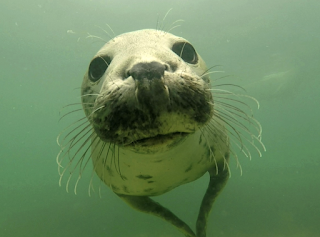 Marine mammals like whales and seals usually communicate vocally using calls and whistles. But now a Monash-University led international study has discovered that wild grey seals can also clap their flippers underwater during the breeding season, as a show of strength that warns off competitors and advertises to potential mates. “The discovery of ‘clapping seals’ might not seem that surprising, after all, they’re famous for clapping in zoos and aquaria,” said lead study author Dr. David Hocking from the School of Biological Sciences.
Marine mammals like whales and seals usually communicate vocally using calls and whistles. But now a Monash-University led international study has discovered that wild grey seals can also clap their flippers underwater during the breeding season, as a show of strength that warns off competitors and advertises to potential mates. “The discovery of ‘clapping seals’ might not seem that surprising, after all, they’re famous for clapping in zoos and aquaria,” said lead study author Dr. David Hocking from the School of Biological Sciences.
10. Cuttlefish can refrain from eating if they know a better meal is on the way
Cephalopods such as octopuses and squids may demonstrate some impressive smarts, but the latest research on cuttlefish may just blow your mind. Researchers have found that cuttlefish fed to a schedule will very quickly cut back on eating less enticing food, so they can gorge themselves on their favorite later on. This means that not only are cuttlefish seemingly able to memorize the feeding schedule, they’re incorporating that schedule into future planning, and then exercising self-control to make the most of their favorite food (shrimp, yum).
The current administration’s proposed budget for fiscal 2021 calls for significant reductions to environmental programs at federal agencies, including a 26 percent cut to the Environmental Protection Agency (EPA). The budget would eliminate 50 EPA programs and impose massive cuts to research and development, while also nixing money for the Energy Star rating system. The Energy Star program, which measures the efficiency of electronics and appliances, would instead rely on businesses to pay a fee to participate in the program.
12. Arctic ice melt Is changing ocean currents
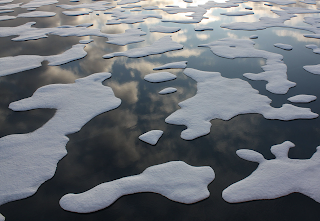 A major ocean current in the Arctic is faster and more turbulent as a result of rapid sea ice melt, a new study from NASA shows. The current is part of a delicate Arctic environment that is now flooded with freshwater, an effect of human-caused climate change. Using 12 years of satellite data, scientists have measured how this circular current, called the Beaufort Gyre, has precariously balanced an influx of unprecedented amounts of cold, fresh water – a change that could alter the currents in the Atlantic Ocean and cool the climate of Western Europe.
A major ocean current in the Arctic is faster and more turbulent as a result of rapid sea ice melt, a new study from NASA shows. The current is part of a delicate Arctic environment that is now flooded with freshwater, an effect of human-caused climate change. Using 12 years of satellite data, scientists have measured how this circular current, called the Beaufort Gyre, has precariously balanced an influx of unprecedented amounts of cold, fresh water – a change that could alter the currents in the Atlantic Ocean and cool the climate of Western Europe.
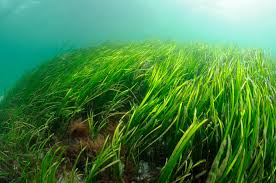 Microplastics are accumulating in Orkney’s seagrass beds at much higher rates than in the areas surrounding them. Marine scientists from Heriot-Watt surveyed a 100m transect of a seagrass bed in Orkney and found microplastics on all seagrass blades and in over 94% of all samples collected. Microplastic pollution is now common in marine environments, with areas like rivers and estuaries particularly vulnerable to high levels of pollution.
Microplastics are accumulating in Orkney’s seagrass beds at much higher rates than in the areas surrounding them. Marine scientists from Heriot-Watt surveyed a 100m transect of a seagrass bed in Orkney and found microplastics on all seagrass blades and in over 94% of all samples collected. Microplastic pollution is now common in marine environments, with areas like rivers and estuaries particularly vulnerable to high levels of pollution.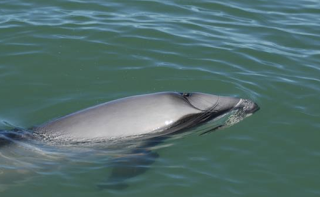
A Green MP has written to Prime Minister Jacinda Ardern asking for the Government to pick the strongest measures to protect New Zealand’s threatened Maui and Hector’s dolphin populations. As ministers mull over feedback received on proposals they put to the public last year, MP Gareth Hughes has passed along a 164,000-signature petition calling for an end to set netting in their habitats. In his letter to Ardern, Fisheries Minister Stuart Nash and Conservation Minister Eugenie Sage, he said the Government “must urgently act” to ensure the dolphins’ habitat was free from deaths resulting from human activities.
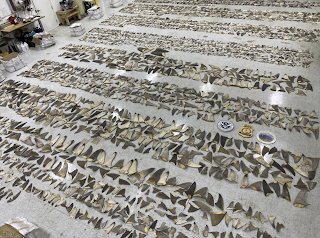 While Florida gains notoriety as the epicenter of the shark trade in the United States, state lawmakers there advanced legislation Monday that would ban the possession of shark fins. The Senate Environment and Natural Resources Committee endorsed that proposal, as well as another bill that would stiffen penalties against hunters who kill black bears. Spurred by advocates, the committee voted to join other states in outlawing the sale and possession of shark fins, a prized delicacy in some cultures, and a lucrative one.
While Florida gains notoriety as the epicenter of the shark trade in the United States, state lawmakers there advanced legislation Monday that would ban the possession of shark fins. The Senate Environment and Natural Resources Committee endorsed that proposal, as well as another bill that would stiffen penalties against hunters who kill black bears. Spurred by advocates, the committee voted to join other states in outlawing the sale and possession of shark fins, a prized delicacy in some cultures, and a lucrative one.
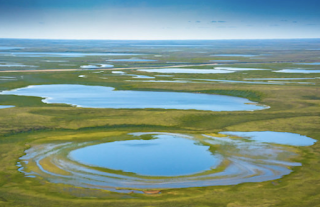 New research techniques are being adopted by scientists tackling the most visible impact of climate change — the so-called greening of Arctic regions. The latest drone and satellite technology is helping an international team of researchers to better understand how the vast, treeless regions called the tundra is becoming greener. As Arctic summer temperatures warm, plants are responding. Snow is melting earlier and plants are coming into leaf sooner in spring. Tundra vegetation is spreading into new areas and where plants were already growing, they are now growing taller.
New research techniques are being adopted by scientists tackling the most visible impact of climate change — the so-called greening of Arctic regions. The latest drone and satellite technology is helping an international team of researchers to better understand how the vast, treeless regions called the tundra is becoming greener. As Arctic summer temperatures warm, plants are responding. Snow is melting earlier and plants are coming into leaf sooner in spring. Tundra vegetation is spreading into new areas and where plants were already growing, they are now growing taller. A team of scientists has observed, for the first time, the presence of warm water at a vital point underneath a glacier in Antarctica—an alarming discovery that points to the cause behind the gradual melting of this ice shelf while also raising concerns about sea-level rise around the globe. “Warm waters in this part of the world, as remote as they may seem, should serve as a warning to all of us about the potential dire changes to the planet brought about by climate change,” explains David Holland, director of New York University’s Environmental Fluid Dynamics Laboratory and NYU Abu Dhabi’s Center for Global Sea Level Change, which conducted the research. “If these waters are causing glacier melt in Antarctica, resulting changes in sea level would be felt in more inhabited parts of the world.”
A team of scientists has observed, for the first time, the presence of warm water at a vital point underneath a glacier in Antarctica—an alarming discovery that points to the cause behind the gradual melting of this ice shelf while also raising concerns about sea-level rise around the globe. “Warm waters in this part of the world, as remote as they may seem, should serve as a warning to all of us about the potential dire changes to the planet brought about by climate change,” explains David Holland, director of New York University’s Environmental Fluid Dynamics Laboratory and NYU Abu Dhabi’s Center for Global Sea Level Change, which conducted the research. “If these waters are causing glacier melt in Antarctica, resulting changes in sea level would be felt in more inhabited parts of the world.” A South Dakota bill aimed at stopping local governments from creating plastic straws, plastic bags and other “auxiliary containers” ban has moved forward in Pierre. The bill passed the full Senate in late January, and on Wednesday moved forward in a House committee. The bill now moves to the House floor, before potentially ending up on Gov. Kristi Noem’s (R-SD) desk. This is similar legislation to neighboring states like North Dakota, Minnesota and Iowa.
A South Dakota bill aimed at stopping local governments from creating plastic straws, plastic bags and other “auxiliary containers” ban has moved forward in Pierre. The bill passed the full Senate in late January, and on Wednesday moved forward in a House committee. The bill now moves to the House floor, before potentially ending up on Gov. Kristi Noem’s (R-SD) desk. This is similar legislation to neighboring states like North Dakota, Minnesota and Iowa.
———————————————–

